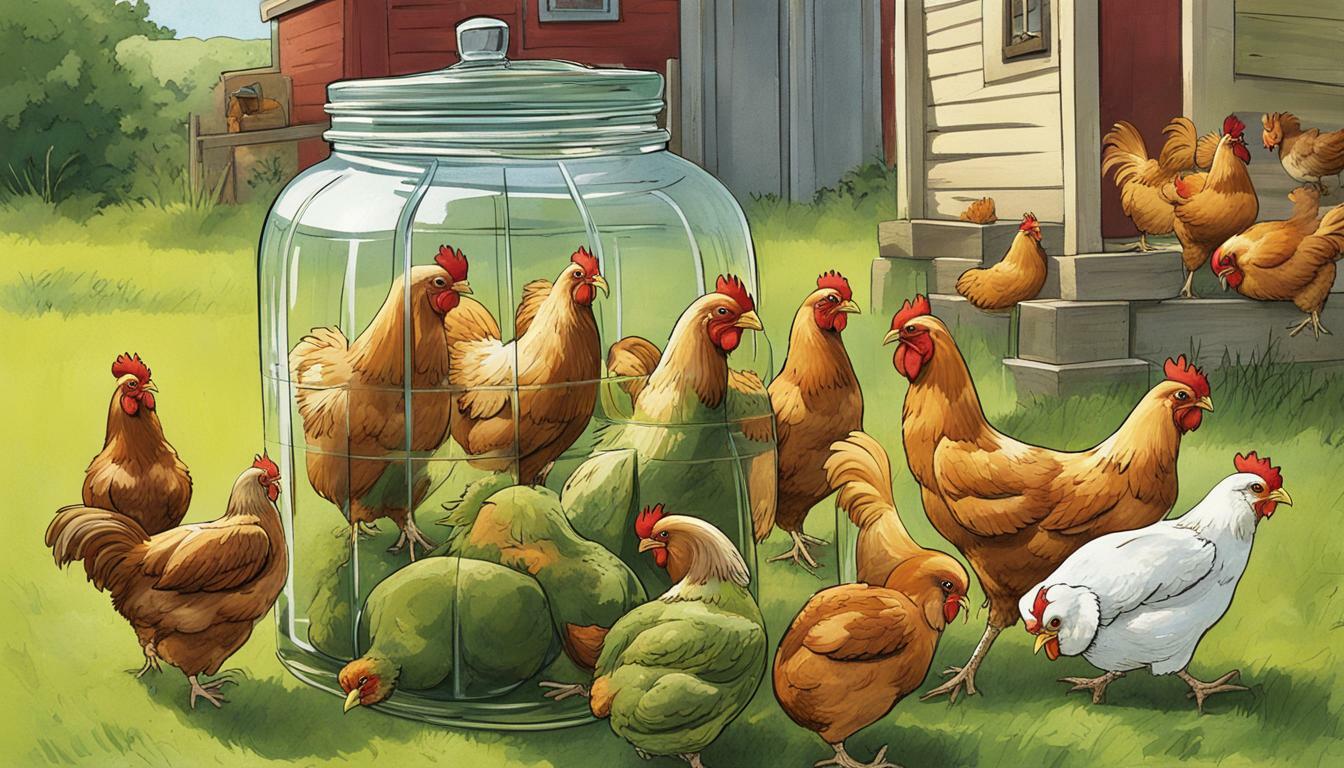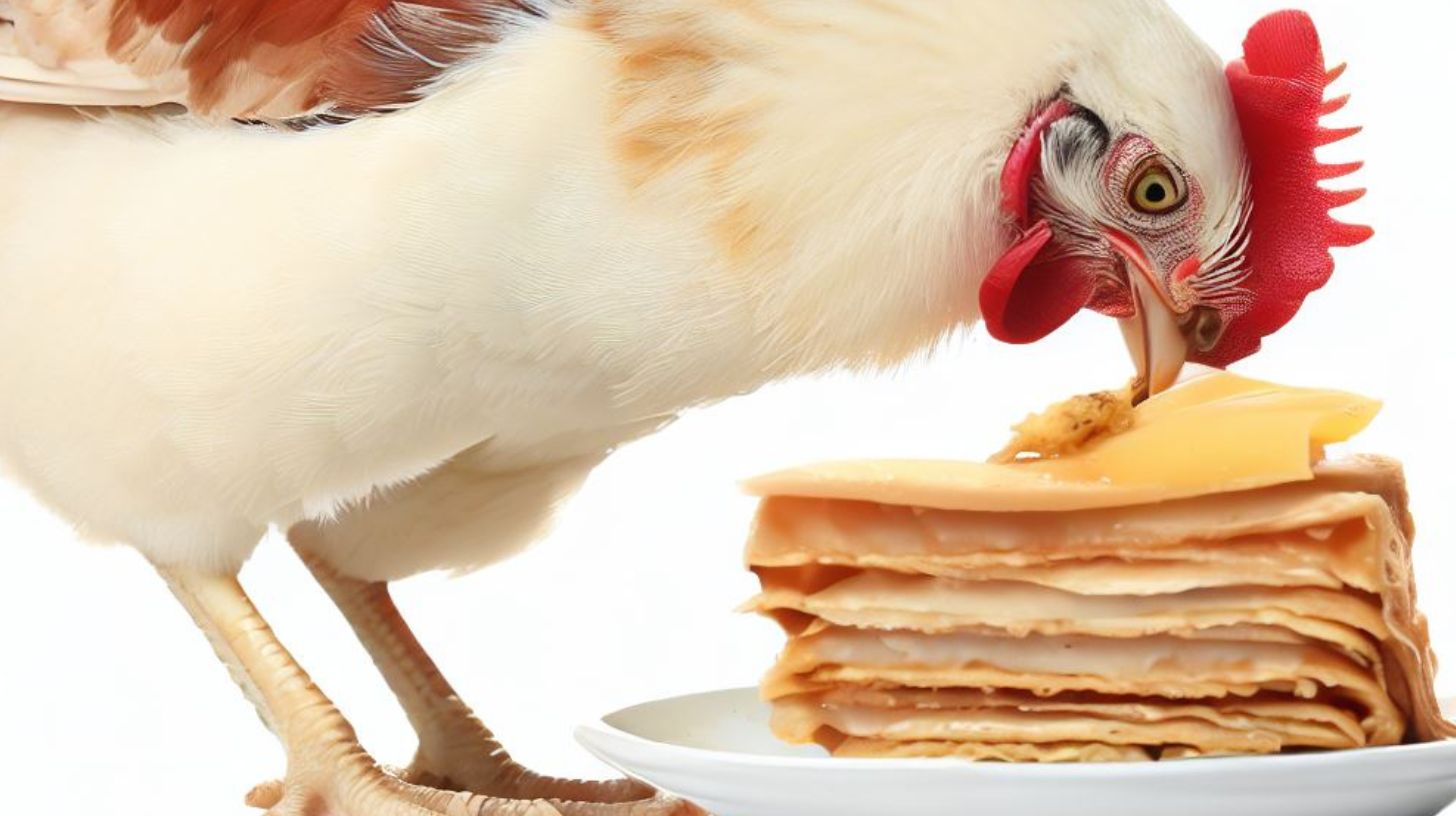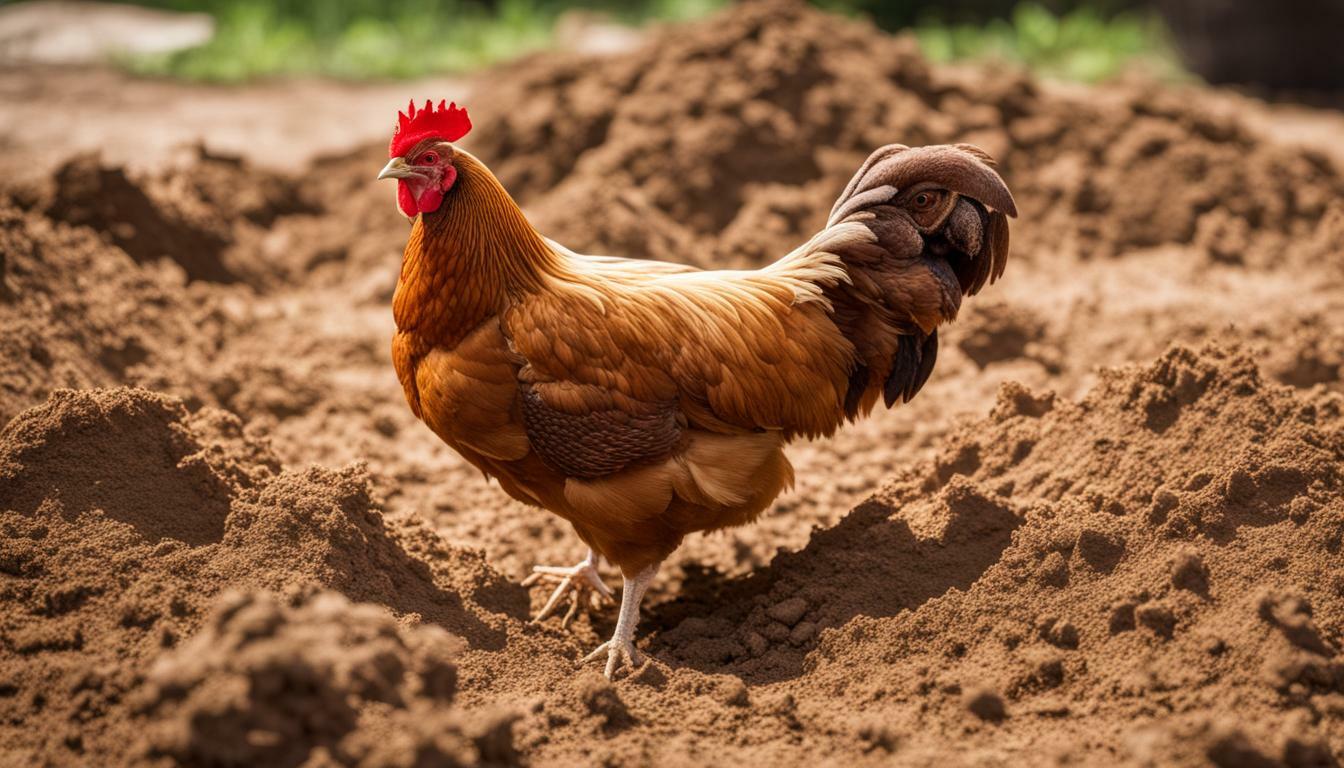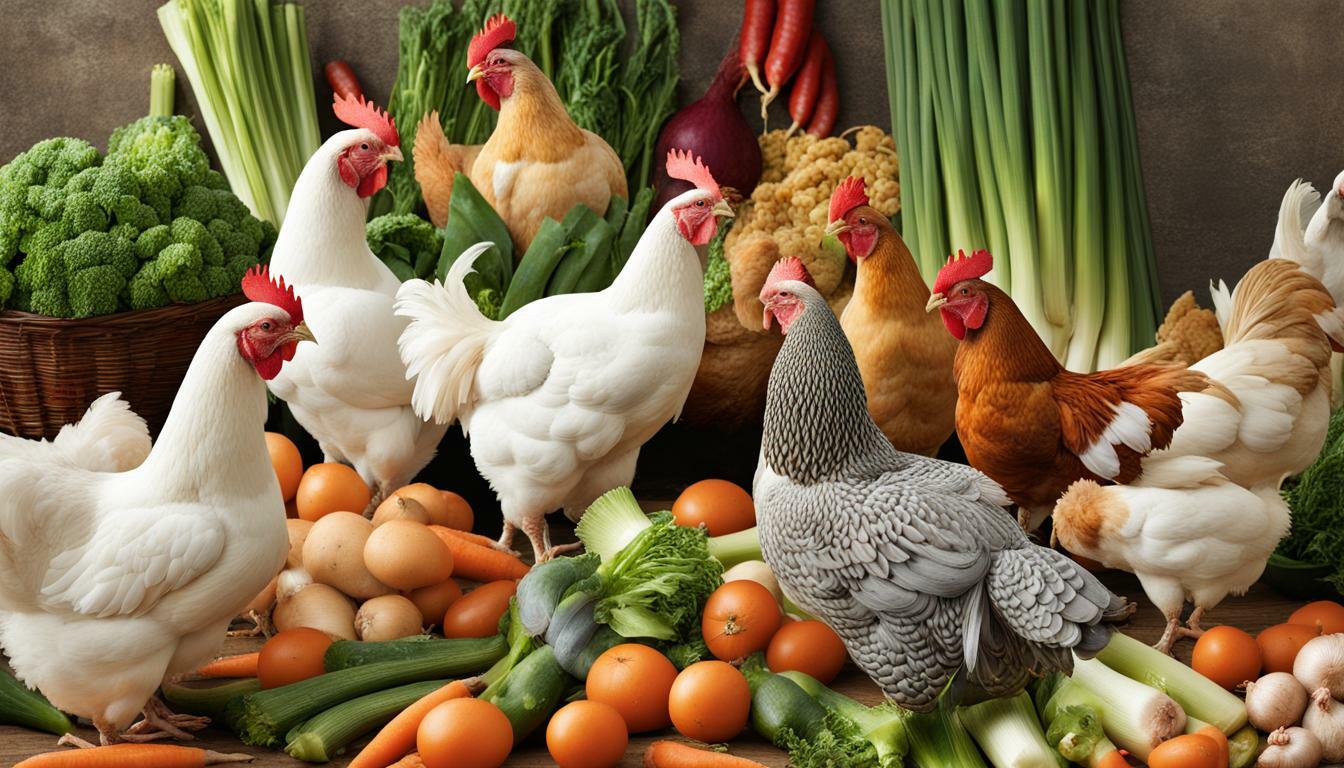Can Chickens Eat Pickles? Find Out the Surprising Answer!

Table of content:
Pickles are a salty, vinegary, and often crunchy snack that many people enjoy. But what about chickens – can chickens eat pickles too? This is a common question for backyard chicken keepers and farmers looking to provide their flock with a diverse and healthy diet.
Are Pickles Safe for Chickens?
The main consideration with feeding chickens pickles is the salt and acidity content. In moderation, pickles are safe for chickens to eat and can be a fun occasional treat. However, too much salt and vinegar can cause digestive upset or toxicity.
Chickens have a much smaller body size than humans, so they are affected more easily by excess salt. Consuming too many salty foods like pickles can lead to sodium ion poisoning in chickens. Some symptoms of salt poisoning include:
- Dehydration
- Diarrhea
- Droopy wings
- Lethargy
- Loss of appetite
Too much acidity from the vinegar brine in pickles can also irritate a chicken’s sensitive digestive tract. This can cause conditions like crop inflammation.
As long as they are fed in moderation, most types of pickled vegetables are fine for chickens. But it’s best to avoid feeding chickens heavily salted, vinegary pickle brine directly. Rinsing pickles before feeding reduces the salt and acidity levels.
What Pickles Can Chickens Eat?
Chickens can safely eat pickled cucumbers and other pickled vegetables like carrots, green beans, cauliflower, and okra. These are all healthy treats for chickens.
Some specific pickle varieties that are safe for chickens in moderation include:
- Dill pickles
- Sweet pickles
- Bread and butter pickles
- Kosher dill pickles
- Pickle relish
- Fermented pickles like kimchi
Avoid feeding chickens spicy pickled varieties like hot and spicy pickles or anything with very heavy brining.
Pickled fruits like watermelon rinds are also fine for chickens as an occasional treat. But do not feed chickens pickled eggs made for human consumption, as these may contain high salt levels or spices that are unsafe.
Can Chickens Eat Dill Pickles?
Dill pickles are one of the most common pickle varieties that chickens enjoy. The dill and other herbs used to flavor these pickles are safe and healthy for chickens.
Fresh dill weed is greatly enjoyed by chickens too. It provides nutrients like:
- Vitamin A
- Vitamin C
- Calcium
- Iron
- Manganese
Dill may also help stimulate chickens’ appetites and provide antimicrobial benefits to their digestive systems.
The main risks with feeding dill pickles are the sodium and acidity levels. But dill pickles are fine for chickens in moderation. Rinsing the pickles or cutting back on the brine helps reduce excess salt exposure.
Can Chickens Eat Sweet Pickles?
Sweet pickles are another safe option for chickens. The main difference between sweet and dill pickles is the flavoring.
Sweet pickles get their flavor from sugar and spices like cinnamon, cloves, and allspice berries. These seasonings are safe for chickens.
However, some sweet pickle varieties may have higher sugar content. Too much sugar can cause digestive issues and obesity in chickens over time.
As always, rinsing sweet pickles or reducing the brine before feeding helps cut back on excess sugar and salt exposure. Offer sweet pickles to chickens sparingly as a treat.
What Happens if Chickens Eat Too Many Pickles?
Eating too many salty, acidic pickles can cause health issues in chickens. Some of the risks include:
- Dehydration – The high sodium levels in pickles can disrupt electrolyte balance and lead to dehydration. Make sure chickens have access to plenty of fresh water at all times to counteract the effects of salty foods.
- Diarrhea – Too much salt, sugar, or acidity irritates chickens’ gastrointestinal tracts and can cause loose droppings or diarrhea. Reduce pickle intake and provide probiotics to get their guts back on track.
- Crop inflammation – The acidity from pickle brine can inflame chickens’ crop if they eat too many pickles or drink the brine. Limit their brine intake and feed pickles in moderation.
- Reduced egg production – Too many salty, sugary foods may throw off hens’ nutrition and cause a drop in egg production. Stick to pickles as a treat and make sure hens get a balanced diet.
With a little care and moderation, chickens can enjoy pickles safely. But be sure to monitor their health closely if feeding pickles frequently.
Do Chickens Like Pickles?
Chickens are naturally attracted to salty and acidic foods. Their diverse foraging behaviors stem from instincts to seek out a wide range of minerals, nutrients, and food sources.
When allowed to graze freely, chickens will sample all kinds of vegetation and insects. They have a penchant for natural treats like grubs, slugs, and worms which have a juicy, acidic taste.
Pickles appeal to these innate taste preferences in chickens. The combination of tangy, salty, juicy, and crunchy texture is very appealing. Chickens will eagerly snack on pickles for these qualities if given the chance.
Always keep in mind that just because chickens like a food does not mean it is inherently safe. But it does explain why pickles are often a cherished treat that can be used for enrichment and training.
What Vegetables Can Chickens Eat?
In addition to cucumbers and pickled veggies, chickens can eat a wide variety of fresh vegetables. Adding more vegetables to their diet provides important nutrients and diversifies their menu.
Some of the top vegetables for chickens include:
- Leafy greens – kale, spinach, lettuce, etc.
- Root veggies – potatoes, carrots, beets
- Squash
- Bell peppers
- Brussels sprouts and cabbage
- Broccoli and cauliflower florets
- Sweet potatoes and yams
Vegetables can be fed raw, cooked, or fermented. Good options for fermented veggies include sauerkraut, kimchi, and curtido.
Avoid feeding chickens raw green potato skins or rhubarb leaves as these contain toxins. But most other veggies are fair game. Mix up their produce for a healthy, appetizing diet.
Are Cucumbers Safe for Chickens?
Cucumbers are the vegetable typically used to make pickles. And just like pickles, cucumbers are a safe, healthy treat for chickens.
Chickens can eat cucumbers raw or pickled. The flesh, seeds, and rind of cucumbers all contain beneficial nutrients, including:
- Vitamin K
- Vitamin C
- Potassium
- Magnesium
- Silica
- Flavonoids like cucurbitacins
These nutrients support bone health, digestion, hydration, and immunity in chickens. The water content also helps keep chickens hydrated.
Cucumbers are non-toxic, easy to digest, and relished by most chickens. Try growing cucumbers near their coop for easy foraging.
Feeding Chickens Pickles Safely
Pickles can be a fun, nutritious supplement to a chicken’s diet when fed properly. Here are some tips for safely feeding chickens pickles:
- Chop pickles into bite-sized pieces to prevent choking.
- Rinse pickled vegetables to remove excess brine and reduce saltiness.
- Limit pickle treats to 2-3 times per week at most.
- Prevent chickens from drinking straight from a pickle jar, as they may over-indulge on salty brine.
- Make sure plenty of fresh water is available at all times to counteract sodium levels.
- Monitor chickens’ droppings, appetites, and egg laying after feeding pickles. Discontinue use if any issues arise.
- Introduce new foods slowly and in small amounts to check for any individual intolerances.
- Avoid feeding moldy, rotten, or otherwise contaminated pickles that could cause illness.
Conclusion
Pickles make a tasty, novel treat that adds variety to backyard chickens’ diets. Chickens can safely eat many types of pickled vegetables in moderation. Focus on low or no-sodium options and always rinse off pickles before feeding to minimize health risks. Monitor chickens closely for any signs of digestive upset. With some precautions, both you and your flock can enjoy sharing this flavorful snack.
Welcome. I’m Adreena Shanum, the proud owner of this website, and I am incredibly passionate about animals, especially poultry. I founded adreenapets.com as a labor of love, stemming from my desire to share my knowledge and experiences with poultry enthusiasts worldwide.




